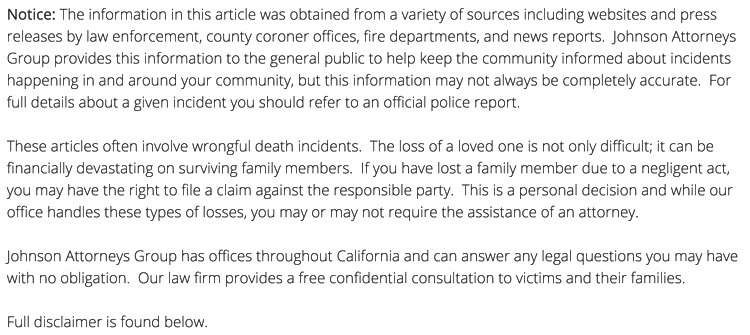 Workers who are paid a salary instead of an hourly wage often believe they are not entitled to overtime pay. However, it would be a mistake for them to assume that without learning all the facts. Did you know that salaried employees are not necessarily exempt from being paid overtime? It is a fact that many employees and their employers tend to overlook.
Workers who are paid a salary instead of an hourly wage often believe they are not entitled to overtime pay. However, it would be a mistake for them to assume that without learning all the facts. Did you know that salaried employees are not necessarily exempt from being paid overtime? It is a fact that many employees and their employers tend to overlook.
Most employees are non-exempt or entitled to overtime pay when they work above 40 hours per week, but oftentimes they are not compensated as they should be by employers if they are paid a salary.
Employers who pay their workers a “salary” instead of “hourly” pay, may not realize that when they don’t pay required overtime to their employees they are in violation of the federal Fair Labor Standards Act’s (FLSA) minimum wage and overtime pay protections.
You are either an exempt employee who is not covered by federal overtime requirements or you are non-exempt and you are protected by these laws.
So what is a salaried employee? It’s an employee who is paid for their work and it’s not for tied to how many hours they work. For example, a salaried employee works more or less than a typical 40-hour work week and their employer does not document their hours. Some of these salaried employees are exempt from overtime, but not as many as most employers and employees assume.
Under the FLSA, most employees including some who earn salary pay are entitled to overtime pay or 1.5 times your regular hourly rate.
These Federal wage and hour laws assume that all employees receive overtime, except if they are professional employees, managers, and salaried supervisors who are exempt from receiving overtime pay.
Here are some exceptions to this rule:

Doctors and Registered Nurses are usually exempt from overtime pay because these are learned professions that require an advanced degree.
Some jobs that are excluded from overtime under Federal law including movie theater employees (not in California), live-in domestic workers, agricultural employees working on small farms, computer professionals who earn above $27.63 per hour, sales employees who work on commission and earn at least 1.5 times minimum wage per hour, auto dealership sales force, mechanics and parts-people, and recreational or seasonal workers. As a general rule, the FLSA does not apply to jobs that are governed by some other federal labor law. An example of this is railroad employees who are covered by the Railway Labor Act and truck drivers, mechanics, loaders and other workers in trucking industry whose employees are covered under the Motor Carriers Act.
Employees who earn less than $23,600 ($455 per week) are never exempt. On the other hand, employees who make more than $100,000 annually are almost certainly exempt. Additionally, if you miss part of a work day and your employer cuts your pay to account for this then you are not exempt. The employer, however, is permitted to deduct paid time off (PTO) from your leave bank if you miss work. Salaried employees should not have their salary reduced if work is slow or there is no work. The employer may dock your salary if you miss a full day due to sickness, disciplinary actions, or personal leave requests. However, even salaried employees are still not exempt from overtime, unless you also have exempt job duties such as the following:
If you’re salaried and your employer does not take improper deductions, then you would be considered exempt if your job requires that you supervise two or more employees, if management is your primary duty of your job, and if you have genuine input into the hiring, promotion, assignments and firing of subordinate employees.
This exemption applies to traditional “learned professions” that require an advanced degree such as engineers, doctors, attorneys (not paralegals), dentists, teachers, architects, clergy, Registered Nurses (not LPNs), actuaries, scientists (not technicians), pharmacists.
It’s important to note that these creative occupations don’t have to be salaried to be exempt. Creative employees who are typically exempt are actors, musicians, conductors, singers, soloists, composers, novelists, writers, cartoonists, painters, and certain journalists who work on-air in television and radio. However, others are non-exempt such as copyists, animators on movie or television cartoons, workers who retouch photographs and reporters who rewrite press releases, recount routine community events, or whose work is subject to substantial control.
If you perform certain administrative duties you may be exempt. Workers in an office or non-manual work that’s directly related to management or the general business operations of your company or their customers, and you are regularly required to use your independent judgment and discretion about significant matters, then you might be exempt. An administrative assistant who is the CEO’s right hand is probably exempt, but the secretary to a mid-level manager probably isn’t.
Retaliation by and Consequences for Employers
 If you object to not being paid overtime or minimum wages, your employer cannot retaliate against you. If you decide you are going to object to their decision, be certain you are right and make sure that you put the objection in writing. You will want to have a paper trail or proof that you objected prior to being fired.
If you object to not being paid overtime or minimum wages, your employer cannot retaliate against you. If you decide you are going to object to their decision, be certain you are right and make sure that you put the objection in writing. You will want to have a paper trail or proof that you objected prior to being fired.
Employers do not want to make a mistake when it comes to overtime payments. The consequences can be enormous because the courts provide that your an attorney representing the employee may invite other employees who also weren’t paid correctly to be compensated fairly as well.
If you are fired or laid off by your employer and you regularly worked more than 40 hours per week, consult an employment attorney to find out if the company owes you back pay for unpaid overtime. At time employees in this situation have been able to negotiate a better severance package for themselves.
The Bottom Line
There are workers who are paid salaries that are exempt and those who are non-exempt. It’s up to you to take the time to find out whether you are entitled to overtime pay and not take the word of your employer. If you believe you are entitled to overtime pay and your employer has failed to compensate you, contact our office at 800-235-6801. We will review the facts, as well as the federal and state laws and regulations that may apply, so that we may protect your legal rights.


